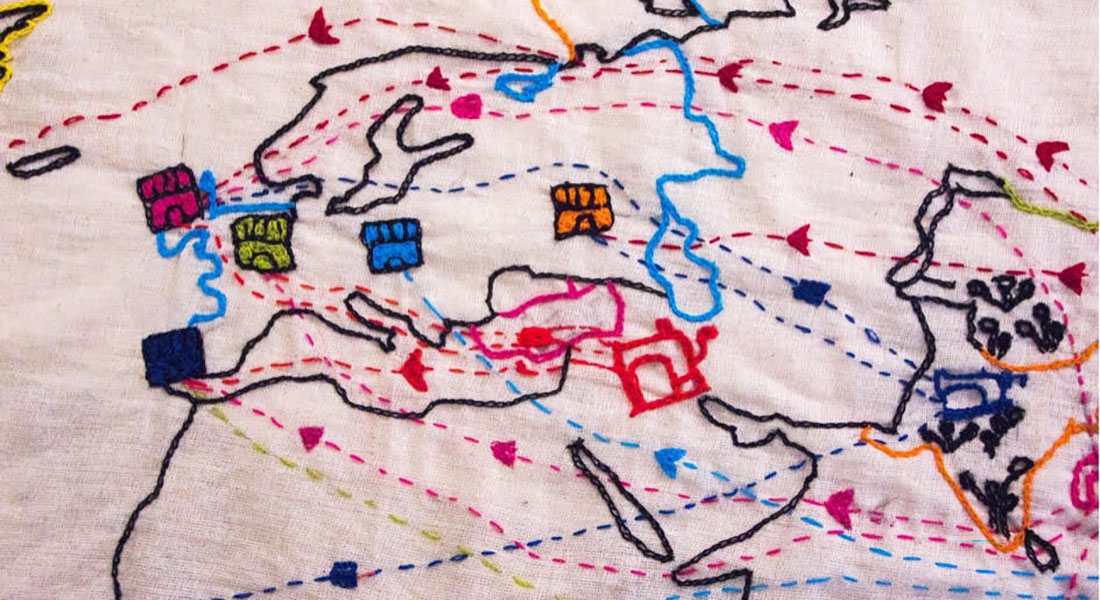Ways of Thinking and Doing Research: Ethnographic and Cartographic Inquiries

The world is not a just place. And neither is research or research-based practice. How then, do we imagine academic and artistic endeavours to seek justice and explain socio-cultural and political things. So much of research in the fields of academia, policy and art focuses on age-old methods of quantifying solutions to very intimately complex problems, or relegate their methods to fitting a mold that would make research and art publishable, often displacing concerns of the many to the hands of the few.
In such a world, how do we imagine other ways of doing practice, researching social, political and climatic phenomena and thinking through pluriversal worlds? Particularly, how can collaborative research and practice emerging from the Global South inspire ways to think otherwise in response to the global quest for ‘justice’. What are the ways and very grounded methods we can employ to think through these things? Inspired by the words of Arturo Escobar, Tanzil Shafique and the more recent efforts of indigenous protestors in Belem, Brazil against COP30, this webinar seeks to open up a conversation about politically engaged methodologies and ways of confronting realities thus far set aside to the margins. The webinar, therefore, hopes to inspire dialogue between multiple methodological engagements such as visual design, ethnographic and sensory ways and cartographic modes of doing research to process what it means to do work in highly unequal cities of the Global South. How can research and practice within Southern urban domains provide avenues to imagine justice?
Speakers
Nitin Bathla
Nitin Bathla is a transdisciplinary researcher working at the intersection of urbanization, the environment, society, and the arts. He holds a Doctorate in Urban Studies from ETH Zurich and is currently jointly affiliated with ETH Zurich and the University of Zurich. He is the author of the award-winning book Researching Otherwise: Pluriversal Methods for Urban and Landscape Studies and the critically acclaimed documentary Not Just Roads. Nitin serves as an editor for the journal Urban Geography and the Urban Political Podcast, and sits on the editorial boards of the Journal of Urban Political Ecology and Shared Habitats. His current research focuses on the political ecology of nocturnal urbanization and public illumination in Switzerland.
Namra Khalid
Namra Khalid is the founding director of Community Climate Design, a Pakistan-based non-profit through which she leads Karachi Cartography and AafatInfo. Her practice maps the amphibious edges of land and water, tracing how people build, remember, improvise, and survive through ecological history, design, and lived memory. From flood-prone streets to floating homes, she works with high-risk communities through counter-mapping, slow fieldwork, and co-designing disaster-response tools to document knowledge that emerges where official spatial data ends but life continues. She received The World Around Young Climate Prize in 2023.
